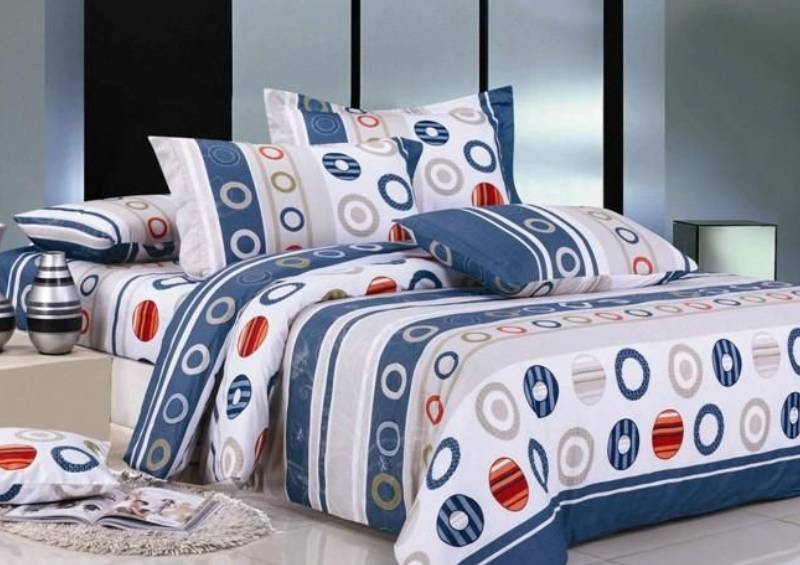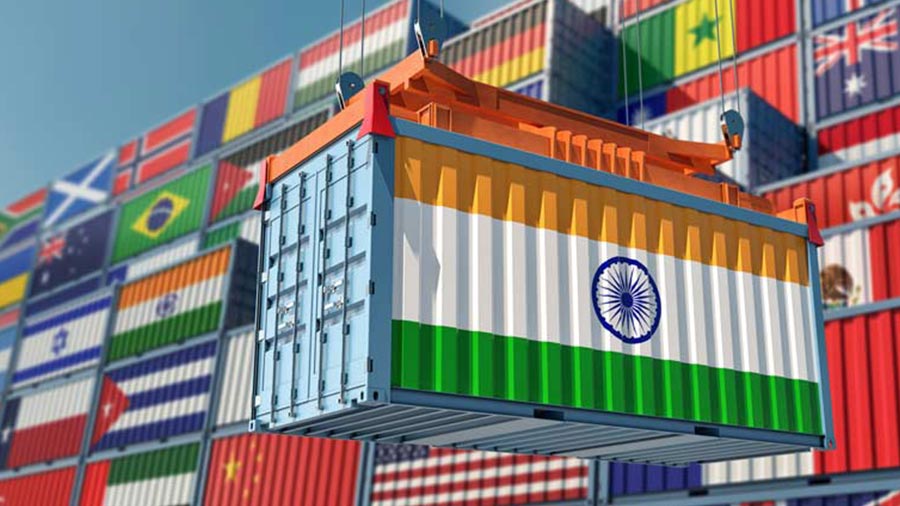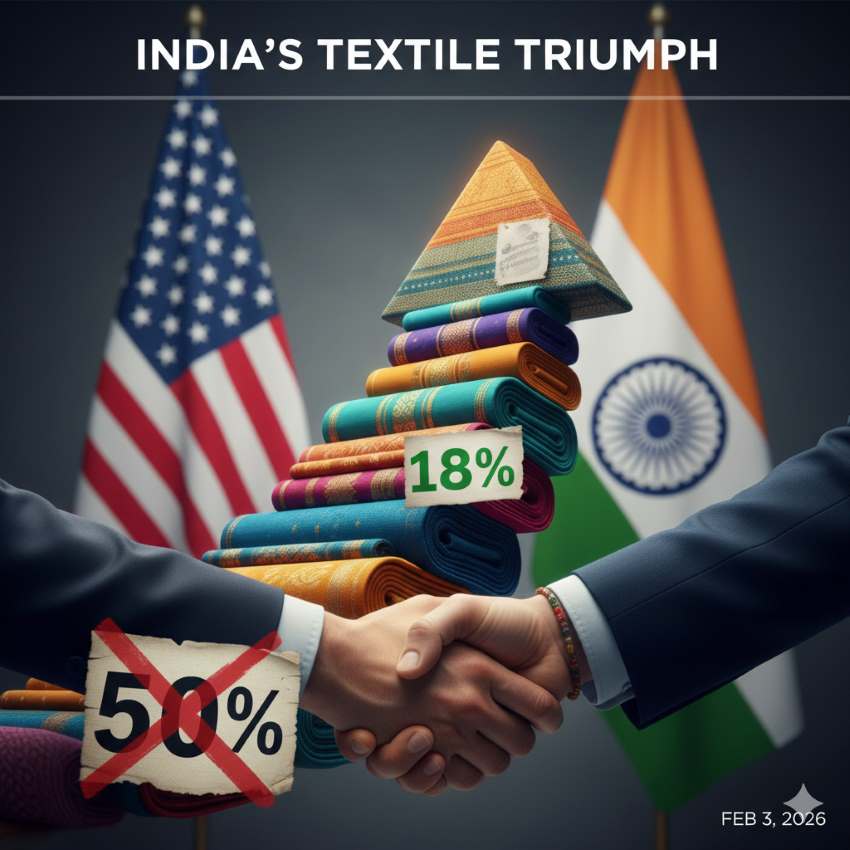
Textiles (142)
UK Fashion and Textiles (UKFT) is leading a £4 million project with partners like Marks & Spencer, Tesco, Pangaia, and New Look to divert large quantities of waste textiles from landfills.
The initiative, called Autosort for Circular Textiles Demonstrator (ACT UK), focuses on developing an automated sorting and pre-processing facility for waste textiles over a two-year period. The consortium includes recycling technologies, textile collectors/sorters, academia, manufacturers, industry associations, technologists, and renowned brands/retailers. Funding is provided by the Circular Fashion Programme, supported by Innovate UK, AHRC, and NERC under UKRI. Project partners involve IBM, Reskinned, Salvation Army, Oxfam, and others.
ACT UK aims to overcome current challenges in achieving circularity by integrating advanced technologies such as optical scanning, robotics, AI, and size reduction equipment in a single facility.
UKFT aims to create a model for large-scale sorting and preparation of non-reusable textiles, potentially preventing hundreds of thousands of tonnes of materials from reaching landfills and supplying resources to the UK textile manufacturing sector. Brands, retailers, and stakeholders are encouraged to participate.
The ILO and IFC have introduced the Better Work program in Uzbekistan, aiming to improve working conditions and competitiveness in the textile and garment industry. On May 30, a memorandum of understanding (MoU) was signed by the IFC, ILO, Uzbekistan's government, employers, and workers' organizations, outlining the program's terms. Better Work will focus on compliance assessments, training, and advisory services to promote labor standards and enhance competitiveness in textile and garment factories.
This partnership is a significant step for Uzbekistan's cotton, textile, and garment production, opening doors to new export markets. As a leading cotton producer, Uzbekistan has undergone notable reforms. Better Work will play a crucial role in upholding labor standards across the country's textile and garment factories, acting as an industry facilitator.
The program seeks to support sustainable growth in the sector, creating decent job opportunities, especially for women in rural areas. Conor Boyle, Officer-in-Charge of Better Work, emphasized the program's dedication to this objective.
The MoU builds on collaborative efforts among the Uzbek government, World Bank Group, ILO, and other stakeholders to enhance labor and environmental standards in cotton fields. Since 2016, the IFC has provided advisory support and investments to Uzbekistan's cotton and textile industry. In 2022, the ILO successfully eradicated systemic child and forced labor from Uzbekistan's cotton production cycle. Initial funding for the Better Work Uzbekistan program was contributed by the European Bank for Reconstruction and Development (EBRD).
Guangzhou’s large wholesale fabric market has been hit by low demand rather than the epidemic.
As of November 13, 707 new confirmed cases and 3,941 new asymptomatic infections were reported in Guangdong province, mainly concentrated in Guangzhou. Factories in Guangzhou areshut or running with limited operations. Though the epidemic has caused regional disruptions in production and distribution, lack of demand is the main reason for the depressed market. There has been no increase in orders from markets that have been unsealed.
Hanzheng Street in Wuhan, China Textile City in Shaoxing, China Oriental Silk Market in Suzhou, Nantong Folded Stone Bridge and other major cloth and garment markets are currently less affected by the epidemic, but market transactions are still thin. Factory orders have not improved significantly after the end of the epidemic control.Downstream finished goods inventory pressure is high, and the operating rate has gradually declined.
The high inventory of filament is mainly due to the obvious weakness of downstream demand, as grey fabric, textile and clothing are all under high inventory pressure. In China domestic sales of textile and clothing have gradually weakened and at the same time export orders have not improved. Domestic sales of filament declined rapidly in November.
The cellulose fibres conference will take place in Cologne on February 11TH and 12th, 2020 the focus is on markets, technologies and sustainability. The global cellulose fibre market is one of the fastest-growing markets altogether, with an annual growth rate of almost 10%. Experts estimate that sales will exceed 50 billion dollars in 2025.
The increasing demand for environmentally friendly and biodegradable fibres for textiles, hygiene products and plastic substitutes in packaging are the most important drivers for growth. In this context, political regulations, which aim to drastically reduce the discharge of microplastics into the environment, play an important role.
In order to be able to meet the constantly growing demand, large investments in wood-based biorefineries are currently undertaken. This is particularly visible in Asia and Northern Europe, where other wood chemistry products are manufactured in addition to cellulose fibres.
This ensures that all components of the wood are used. Increasingly, alternative raw material sources are being used as well, such as used textiles, waste wood, agricultural industry residues and wastewater, which often still contains cellulose. Utilising such alternative sources, the ecological footprint of cellulose fibres can be even further reduced.
Leading companies such as Lenzing (Austria), Sateri (China), Aditya Birla (India), Södra (Sweden), Metsä Fibre (Finland) and Kelheim Fibres (Germany) will present their latest technological developments, new properties and applications. Furthermore, life cycle Institute for Ecology and Innovation assessments and concepts for the extraction of cellulose fibres from alternative raw material sources will be presented, whereby the fibres can be reintegrated into the circular economy to be used again. In this context, auxiliary materials (Bozzetto (Italy)) and equipment (Levaco Chemicals (Germany)) are also included in the ecological optimisations.
The market leaders in the industry are joined by numerous start-ups and leading research institutes from Denmark, Germany, Finland, the Netherlands, Sweden and the USA. Sustainability will be highlighted by two sessions and a panel discussion, in which users, certifiers and environmental groups will participate. Particularly the environmental activists of Canopy (Canada) have set themselves the goal of developing corporate solutions that protect the last natural forests. 750 companies have already joined this goal.
An additional thematic focus is the biodegradability of cellulose fibres. This topic is of particular importance because microfibres inevitably enter the wastewater during the washing of textiles. Furthermore, various disposable plastic products that can be partially substituted by cellulose fibres will be banned from 2021. There will be interesting scientific presentations on these topics from the Niederrhein University of Applied Sciences (Germany) and the Scripps Institution of Oceanography, UC San Diego (USA), among others.
Sateri (China), Lenzing (Austria) and Bozzetto (Italy) will support the conference as gold sponsors. In addition, LEVACO Chemical (Germany) will be involved as a silver sponsor and NC Partnering (Finland) and Stora Enso (Finland/Sweden) as bronze sponsors.
Premium partner of the conference is the environmental activist group Canopy (Canada). Other well-known partners of the conference are BCNP Consultants (Germany), C.A.R.M.E.N. Germany, CLIB Germany, the Institute of Textile Technology (ITA) of RWTH Aachen University Germany, PEFC International Switzerland/Germany, Textile Exchange Germany/USA, The Fibre Year Consulting, Switzerland and the World Bioeconomy Forum, Finland.
With growing wellness trend among consumers, Lenzing is developing fibers that keep users pleasantly cool and dry with natural comfort and versatility. Tencel Active is a group of cellulose fibers of botanic origin that keep the body pleasantly cool and dry with their natural comfort and versatility, enabling freedom to move with confidence. Lenzing is focused on introducing its award-winning Refibra technology and Lenzing Ecovero fibers to the active wear segment as well as the Lenzing Modal Black solution for colored fibers. Lenzing’s pioneering Refibra technology reinforces circularity through recycling cotton scraps with minimal emissions. The fully sustainable Lenzing Ecovero branded fibers offer transparent identification ensuring these viscose fibers are cleanly sourced and produced.
Water conservation is another environmental concern in the industry. Synthetic materials that are frequently used for sportswear, such as polyester, are naturally hydrophobic, making them more difficult to dye. To tackle this, Lenzing has introduced Lenzing Modal Black fibers, a spun-dyed fiber that incorporates the pigment during the extrusion production process. It can help lower energy and water consumption by 50 per cent compared to conventional dyed fabrics. These fibers are suitable for soft sports garments, such as yoga clothing or athleisure leggings. They are also fade-resistant and show no signs of fading even after up to 50-plus washes.
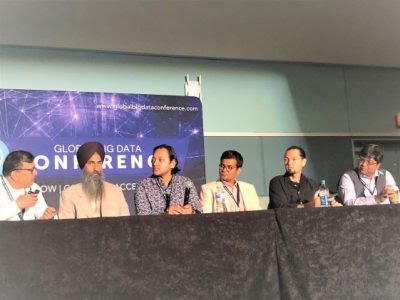 E-commerce platforms enabled with Artificial Intelligence (AI) are changing the business model of many brands. However, Sudhir Kadam, Venture Partner of FYDA Growth Partners believes there’s still a lot to achieve. While moderating the keynote panel ‘AI in Retail/E-commerce’ at the 7th Annual Big Data Conference, he stated though it is easy to adopt AI if you start from scratch; it is difficult to dismantle a legacy system for big companies.
E-commerce platforms enabled with Artificial Intelligence (AI) are changing the business model of many brands. However, Sudhir Kadam, Venture Partner of FYDA Growth Partners believes there’s still a lot to achieve. While moderating the keynote panel ‘AI in Retail/E-commerce’ at the 7th Annual Big Data Conference, he stated though it is easy to adopt AI if you start from scratch; it is difficult to dismantle a legacy system for big companies.
Leveraging data to enhance consumer experience
Matthew Tovbin, Software Architect at Salesforce, believes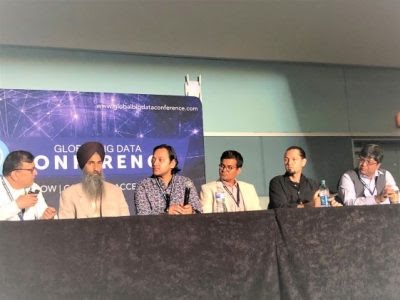 adopting AI is like transforming a company’s operations inside out. His company embraced AI a few years ago and has fully integrated the system into its operations. Similarly, GAP has been building quantitative models for over 30 years and experiments a lot on its platform to understand the behavior and interaction of its users. The brand aims to speed up its delivery process and identify the weak links in the process that are resulting in the loss of the time by understanding the relevancy of AI both from its scale perspective and its ability to add productivity to the value chain of e-commerce retail.
adopting AI is like transforming a company’s operations inside out. His company embraced AI a few years ago and has fully integrated the system into its operations. Similarly, GAP has been building quantitative models for over 30 years and experiments a lot on its platform to understand the behavior and interaction of its users. The brand aims to speed up its delivery process and identify the weak links in the process that are resulting in the loss of the time by understanding the relevancy of AI both from its scale perspective and its ability to add productivity to the value chain of e-commerce retail.
Use of AI is also helping companies like Levi Strauss to transform their business. Levi’s is leveraging data and algorithms on these platforms to enhance its consumer experience. It has been building applications to help its consumers shop online and has recently launched a ‘recommendation system’ which helps its customers to find relevant products.
Challenges of insufficient knowledge
However, there are many challenges brands are facing as they are working in a new domain with new technologies. Another challenge is the use of Natural Language Processing. Brands find it difficult to cope with both the language and image processing used in the NLP model. They believe the language used by the model is as stable as deep learning and the image processing quality is also weak. To counter this, they are reading high-level reviews on the technology and its applications. Through this, it they are able to isolate the problem areas for its customers.
Arijit Sengupta, CEO of Aible, believes one needs to be an expert data scientist to create AI and most people do not have data scientists. He expects AI to be most impactful technology in future. However, companies do not have the required knowledge about it.
Summing, Sridhar Muppalla, NIT Warangal brand ambassador said AI is the buzz word currently with companies investing money in it. However, his company also aims to promote startups as only if they are successful, they will hire more people.
A study by fashion website Lyst has indicated that women are opting for loosing fitting and relaxed denims over skinny denims. Mom jeans are becoming popular with 200,000 fashionistas opting for these type of jeans in a month. Demand for wide-legged jeans has also increased by 68 per cent while that for pastel coloured jeans has also increased by 103 per cent.
According to Lyst white jeans are also on many womens' wishlist, with searches up 42 per cent since the beginning of March. In the last week of May, white jeans sales came close to surpassing sales of blue jeans for the first time. However, 7 out of 10 shoppers search for blue jeans, making this style of denim the most sought after in the world.
The low rise cut that was beloved of Britney Spears and Girls Aloud in the noughties is also making a comeback with an increase in searches for ‘low cut’ and ‘hipster’ jeans in the last 6 months.
"Lindauer Dornier GmbH has launched the standard variant of its rapier weaving machine P2 at ITMA 2019. More flexible, faster and more efficient than P1, The P2 is the result of almost seven decades of expertise in developing and building rapier weaving machines. With its improved shed geometry and more rigid frame, better insertion performance, maintenance-free drive (developed in-house) and optimised positiveactive center transfer, the P2 henceforth replaces the P1 as the most flexible rapier weaving machine in the world."
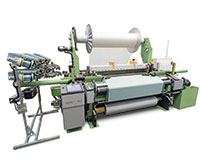 Lindauer Dornier GmbH has launched the standard variant of its rapier weaving machine P2 at ITMA 2019. More flexible, faster and more efficient than P1, The P2 is the result of almost seven decades of expertise in developing and building rapier weaving machines. With its improved shed geometry and more rigid frame, better insertion performance, maintenance-free drive (developed in-house) and optimised positiveactive center transfer, the P2 henceforth replaces the P1 as the most flexible rapier weaving machine in the world.
Lindauer Dornier GmbH has launched the standard variant of its rapier weaving machine P2 at ITMA 2019. More flexible, faster and more efficient than P1, The P2 is the result of almost seven decades of expertise in developing and building rapier weaving machines. With its improved shed geometry and more rigid frame, better insertion performance, maintenance-free drive (developed in-house) and optimised positiveactive center transfer, the P2 henceforth replaces the P1 as the most flexible rapier weaving machine in the world.
Better operability,greater investment security
The new P2 is 240 millimeters shorter and 40 millimeters lower than P1. "This simplifies its operation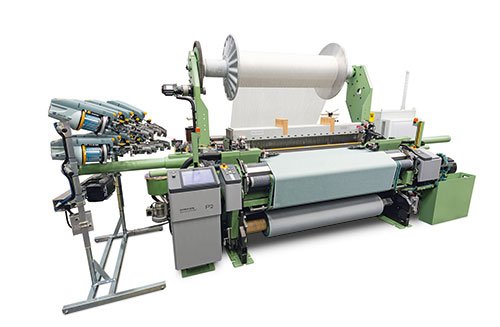 enormously", declares Thomas Laukamp, Predevelopment Manager of the machine. Furthermore, the P2 machine structure consists of clearly defined primary and auxiliary modules. This module-based construction principle is intended above all to make conversion and expansion work simpler. This in turn assures the user greater investment security, because users can respond more rapidly to changes in the market.
enormously", declares Thomas Laukamp, Predevelopment Manager of the machine. Furthermore, the P2 machine structure consists of clearly defined primary and auxiliary modules. This module-based construction principle is intended above all to make conversion and expansion work simpler. This in turn assures the user greater investment security, because users can respond more rapidly to changes in the market.
The P2 can be adapted easily and quickly for processing different yarns for clothing, home and technical textiles as well as for high-quality composite semi-finished materials.The central module in frame construction is 75 percent more rigid than the P1 and is also designed for optimum force flow. The torsional rigidity of the reed shaft has been increased by 50 percent to lend more stability to the weaving process.
Supreme flexibility in three variants Whether it is used with cam motion, dobby (up to 24 shafts) or Jacquard machines with up to 30,000 hooks and in conjunction with the EasyLeno® leno system developed by DORNIER – with up to 16 filling thread colors the P2 is the ideal tool for creative, flexible, precise and efficient production of top quality clothing and home textiles or technical textiles in glass, carbon or aramid.
The new machine is available in three variants: Besides the standard configuration, the P2V is a reinforced version offering a reed beat-up force as much as 37 kN, and the P2S heavy-duty weaving machine is supplied with a maximum reed beat-up force of 50 kN for very heavy and dense technical fabrics. Like all weaving machines from DORNIER, all variants of the P2 are equipped with high-performance interfaces so they can be integrated easily in the IT/tool environments in the weaving mills.
Patented innovations for maximum productivity
Besides the unrivaled DORNIER SyncroDrive® drive concept, three other patented, optional innovations by DORNIER offer potential for raising productivity further:the color selector and feed system DisCoS (DCS)enables exceedingly simple processing of up to eight colors; the Weft Saver (DWS) waste saving device enables weaving without a left catch selvedge, reducing waste, and the double weft rapier heads (DoPPIO) with free color transfer and parallel weft insertion.
Kornit Digital, a leader in digital textile printing technology, has launched a range of industrial digital textile printing solutions at ITMA 2019. These solutions enable unlimited design creativity, faster turnaround times and sustainable production.
The first of these solutions, the Kornit Presto is the world’s only industrial single-step solution for direct-to-fabric printing. The system is perfectly suited for the home décor and fashion markets. It eliminates the need for pre and post treatment of fabric and allows for high-quality printing on an extraordinarily broad variety of fabric types. The Kornit Presto solution uses the 100 per cent water-free patented NeoPigmentTM process, and is the shortest process from file to finished product, making it the most environmentally friendly solution available for direct-to-fabric textile printing today.
Kornit Konnect is a cloud-based software analytics platform that enables businesses to monitor production, analyse insights and manage their fleet, to eliminate blind spots. It includes a fleet management dashboard, data-driven benchmarks, actual production costs, and cost structures per job, making it easy for businesses to learn more, react faster and perform better.
Also on show in the booth are the Kornit Atlas and the Avalanche Poly Pro systems that were introduced earlier this year. Following dozens of installations worldwide and successful ramp-up at multiple customer sites, hundreds of thousands of garments have already been produced. Kornit will perform live printing of Adidas products on these two systems at ITMA. The Adidas mission is to be the best sports company in the world and one of their three key strategic choices is an Open Source strategy. Adidas is collaborating with Kornit to support their direct-to-garment innovation strategy, with Kornit as a key partner in digital embellishment. Adidas has recently invested in the Kornit Atlas and Avalanche Poly Pro solutions and is looking to expand its digital embellishment capabilities further.
The Export Promotion Council for Handicrafts has set up a lace center in Andhra Pradesh. The center has have facilities such as exhibition halls, an auditorium, an open air theatre, meeting rooms, facilities for a craft bazaar, accommodation for buyers and designers besides an administrative set up etc. The objective is to help craftpersons, artisans, producers and exporters in the east and west Godavari region of Andhra Pradesh to develop new designs, adopt new production techniques of lace products, do marketing and exports through exhibitions and craft bazaars etc. This center will also enable the producing and exporting community to interact with foreign experts, designers and buyers with regard to product development and exports.
It is estimated that more than one lakh women artisans are involved in making lace products part time. More than 80 per cent lace exports from India originate from the east and west Godavari regions. EPCH has also taken various initiatives for enhancing the design and quality of lace and lace products by organising skill development programs in different segments such as stitching and garmenting, dyeing and capacity building and value added skills on crochet. India’s overall handicrafts exports have grown 15.46 per cent over last year.
- 1
- 2
- 3
- 4
- 5
- 6
- 7
- 8
- 9
- 10
Ralph Lauren defies luxury norms with 10% revenue rise as peers falter
In a retail landscape increasingly defined by normalization, industry jargon for stagnant growth and cautious consumer spending, Ralph Lauren Corporation... Read more
A new chessboard in textiles, US, Bangladesh and India
In early February 2026, a landmark reciprocal trade agreement between the US and Bangladesh was concluded, marking a new chapter... Read more
18% deal gives India edge in US home textiles market
By early 2026, the mood across India’s home textile clusters, from Panipat’s terry towel hubs to Ichalkaranji’s spinning belts and... Read more
Rising rPET demand and high-performance fibers reshape polyester industry dynami…
The global textile and apparel ecosystem is entering a decade marked by unprecedented capacity expansion and evolving sustainability imperatives. Industrial... Read more
Budget 2026: Surat-Dankuni corridor and yarn banks set to reshape India’s textil…
The Union Budget 2026-27 has moved beyond subsidies and incremental incentives and instead attacked the sector’s three most persistent constraints... Read more
Next accelerates York flagship opening with high-velocity retail model
Next is overhauling its brick-and-mortar strategy, with its upcoming York store opening tracking significantly ahead of schedule. The retailer is... Read more
Burlington Stores signals strategic shift with regional realignment and 110-stor…
Burlington Stores, Inc has initiated a major operational realignment as it enters the 2026 fiscal year, prioritizing high-efficiency store formats... Read more
India-EU FTA 2026: The $100 bn textile opportunity and Turkey’s exclusion
In a manoeuvre that could redefine global textile trade, India has secured a strong advantage in the recently concluded India-European... Read more
Dhaka to Hanoi on alert as India gains the tariff edge
For years, India’s textile exporters fought global competition with one hand tied behind their backs. While its factories matched global... Read more
US-India Trade Reset: Apparel and textiles set for high-volume comeback as tarif…
The high-stakes trade standoff between Washington and New Delhi has reached a decisive turning point. Following a strategic dialogue between... Read more



